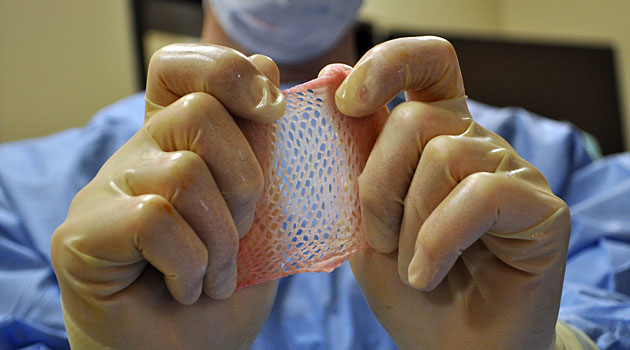There were several important developments in recent days linked to our exposure of the international trade in human tissue.
The Pentagon announced a new program to better oversee human cadaver tissue used in U.S. Defense Department hospitals and it is investigating allegations that some tissue-based medical implants provided to service members may have been obtained improperly.
At the same time, Congressional investigators began looking into contracts with RTI Biologics, a Florida-based manufacturer of medical implants made from human bones, skin, ligaments and other tissues.
RTI also issued a statement saying it had “made a decision to voluntarily suspend import of tissues” from Ukrainian institutions.
RTI is one of the world’s largest players in the billion-dollar human tissue industry – processing a quarter of all material recovered from cadavers in the United States.
The International Consortium of Investigative Journalists reported in July that RTI had obtained tissues from suppliers in the U.S. and the Ukraine that have been investigated for allegedly forging documents or bullying families into signing donor consent forms.
Why we collaborate with other investigative journalists
We feel this investigation is a good example of how reporters can work together to produce better investigative journalism.
Our inquiries were conducted across 11 countries and the project was co-researched with National Public Radio and Newsday (USA), the Kiev Post (Ukraine), The Daily Slovakia (Slovakia) and La Voce della Repubblica Ceca (Czech Republic).
By getting many reporters involved early we were not only able to help each other with country-specific inquiries but we had reporters who could speak the language and who understood the nuances of obtaining information locally.
We posted our methodology and that has since helped other journalists in other countries to make further inquiries. We happily cooperated with a number of other journalists even after our own stories were published.
We also posted our collaboration workflow: ICIJ’s best practices for collaborating with investigative reporters across borders, in different time zones, and working in different languages, which we have honed over many years. Bottom line? Building trust and friendship within the team is the most important part of the process.
Finally, we published the step-by-step process by which we analyzed the data associated with the tissue trade project, in the hope that other investigative reporters can learn from our lessons and apply them to their own work.
It is a two-way commitment. In return for information, we hope to prompt future collaborations and to show, through doing, that not all investigative stories need to be conducted behind a wall of secrecy.
If you have an international story that needs to be exposed, help us to expose it. Email us at investigations@icij.org
![]() Subscribe to The ICIJ Global Muckraker by email or get the RSS feed
Subscribe to The ICIJ Global Muckraker by email or get the RSS feed
